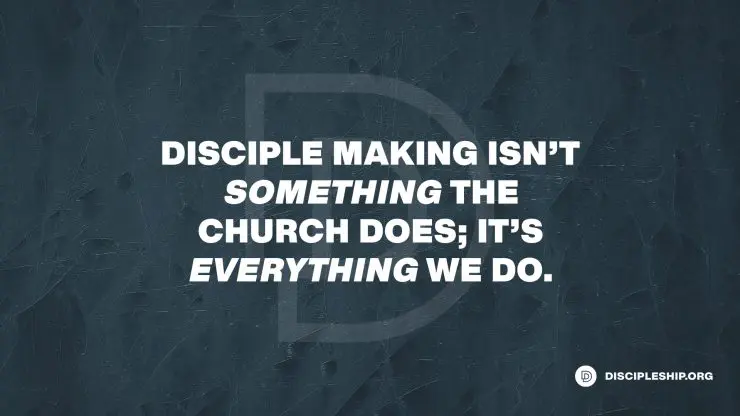Intentionality
By Bobby Harrington
Physical training is good, but training for godliness is much better, promising benefits in this life and in the life to come. This is a trustworthy saying, and everyone should accept it … 1 Timothy 4:8-9 (NLT)
Intentionality – discipleship requires us to have strategy, direction, and specific steps for those we are discipling.
The Oxford Dictionary describes intentionality as “the fact of being deliberate or purposive” (yes, purposive is a word!). We must state, up front, that this concept may be hard for people to believe in or grasp in our day. This concept means that disciplemakers know where other people need to go and they have a plan to help them get there.
We live in a time where we celebrate humility in moral and spiritual circles and we do not like those who talk and act like they might know the way. We are suspicious of those who claim knowledge or insight about a spiritual journey for others. Our post-modern world pushes away from absolutes. Instead we prize the modesty of uncertainty and admire self-professed expressions of doubt. Amongst Christians, there is now a common posture that people take, saying, “only God can guide people.” “Our only job,” they say, “is to pray and trust the Holy Spirit’s guidance in another person’s life.”
The problem with this posture is that it can be at odds with the teaching of Jesus and with discipleship as it is found in the Bible. Let’s carefully examine a few sections of scripture that make this point clearer.
We want to start with the primary text on discipleship in the New Testament again from the words of Jesus in Matthew 28:19-20.
Therefore go and make disciples of all nations, baptizing them in the name of the Father and of the Son and of the Holy Spirit, and teaching them to obey everything I have commanded you. And surely I am with you always, to the very end of the age.” (NIV)
This text begins with two imperatives: “go” and “make.” Jesus is commanding us to be intentional. We can only follow Jesus’ teaching in this text if “we make the decision to go” (into the world of lost people, those facing eternal judgment without Christ) and “we make disciples” (enable people to follow Jesus by our efforts). The second imperative is key: we can only “make disciples” if we know what a disciple is and how to make one. A disciplemaker, by definition, is guided by intentionality and planning.
There is balance here because the text ends with a promise of Jesus’ presence. He tells us that in the disciple making process, he is with us always, to the very end of the age. So, we do our part and we trust that Jesus is in us, making it happen through our efforts. I make disciples, but I do not do it by myself. And I do not just leave it to Jesus. He commanded me to do my part, as he works through me.
If I do not pursue an agenda and if I do not have a basic sense of direction, I cannot make disciples. If the plan deviates from Jesus’ model, it will be a monumental failure. And if I don’t move out and implement this plan, I won’t make disciples. I need a plan because, according to the text, making disciples includes my role in teaching them “to obey everything that Jesus commanded.” I must be intentional so that I can be faithful to teach them what Jesus commanded.






